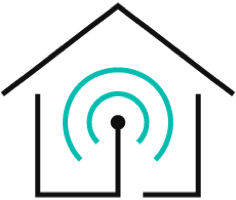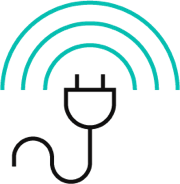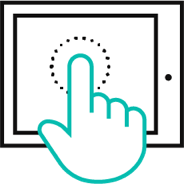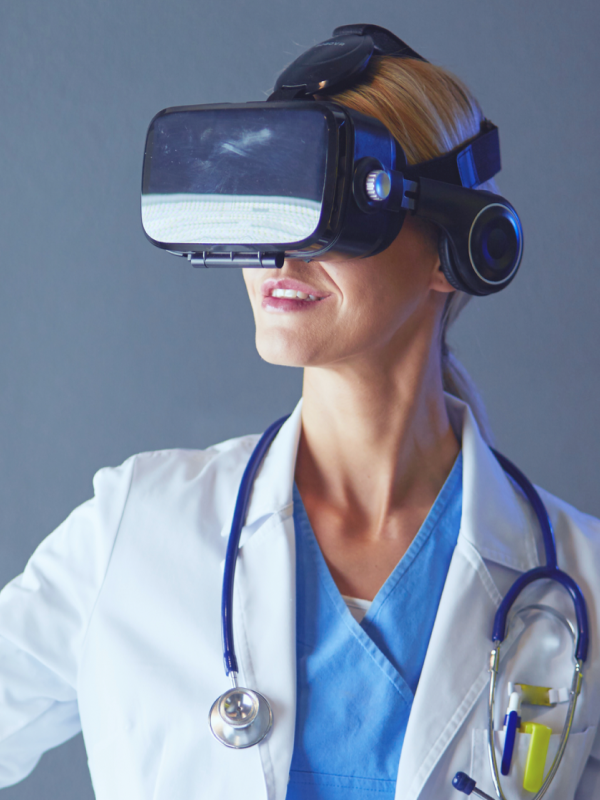The concept of Smart devices in healthcare is not a foreign idea. Various smart devices have been used for many years to ensure better health and create a better health care and medical system. Devices like smart health monitors, trackers, and equipment are gaining immense popularity because of their effective performance, and it’s proven that they can efficiently create positive changes in the medical aspects.
- Overview Of The Current State Of Smart Health Devices And Their Importance In Healthcare
- Virtual Health Assistants
- The Concept of Smart Health Homes And Their Benefits
- Artificial Intelligence (AI) In Healthcare
Overview Of The Current State Of Smart Health Devices And Their Importance In Healthcare
The involvement of smart health devices in healthcare is at an ever-pinnacle right now. For example, let's look at some of the popular smart health devices and how they benefit the healthcare system as a whole.
Fitness Trackers
The fitness tracker is one of the most commonly used smart health devices in recent times. They are simple, affordable, and highly useful, especially if you are trying to get into a healthy mindset and lifestyle. And you can use them as accessories as well.
The purpose of these trackers is to monitor our body and health through sensors. Most fitness trackers can track our heart rate, calories burnt, how many steps we have walked daily, etc. Some trackers can also track sleep and stress conditions. You can even find built-in GPS and distance tracking in some brands.
Fitness trackers help you monitor your conditions during workouts or in general, so you have better insight into your body conditions. They also help you stay motivated to reach your daily workout goals.
Smart Gym Equipments
Smart gym equipment is on the pricier end of the spectrum, but they are gaining continuous popularity among the young generation. The reason for their high demand despite the high cost is their amazing performance. In fact, they are equivalent to personal trainers to some extent.
For starters, you can hook them up to the internet, just like any smart product. Watching workout videos or listening to some songs while running on the treadmill is no longer a challenge.
Then most gym equipment has screens attached to show your health data like oxygen level, calories burnt, heart rate, and many more. You can also transfer them to your fitness app for better insight into your workout session. They also suggest appropriate workout plans according to your health data.
But the main reason smart gym equipment is effective is because of their goal-oriented performance and user-friendly nature. It's easy to reach your workout target when you have a better workout plan and motivation.
Heart Rate Monitor
Another popular smart health product frequently used in smart health systems is an ECG monitor or Heart Rate Monitor.
The monitors look like any regular smartwatch, so it’s easy to wear. Little sensors are attached to it that check your heart's rhythm or beat and simultaneously produce electrical signals. At the same time, the data from the monitor can also be sent to other devices through Bluetooth or an internet connection.
For example, your doctor can keep an eye on your heart's condition and give feedback. You can also connect the heart monitor to your fitness tracker app, smart gym equipment, etc to see the information in real time.
Virtual Health Assistants
The implementation of virtual assistants in healthcare is nothing new. Especially during and after the Global Covid Pandemic, virtual assistance in healthcare has benefitted and saved thousands of lives. Even in the upcoming days, their intervention in the healthcare system has been increasing rapidly, and we can see its example everywhere around us.
Routine or more trivial matters such as booking appointments, small inquiries, health monitoring, etc. can be achieved with the help of virtual assistants. As a result, doctors and medical personnel can use this precious time on more serious cases.
The example of virtual assistants in healthcare is many. On the top of our heads, we can see some of the common examples here.
Medical Assistance During Covid
During the global covid pandemic, the use of virtual assistants peaked in healthcare. Avoiding human interaction with covid patients while also ensuring proper medical assistance to them was only possible because of it.
Besides, common questions about covid symptoms and their usual prevention were provided to the general citizen employing virtual assistance.
Even now, as newer information about coronavirus is gained, you can access those on different medical websites.
Assessing Common Symptoms
Symptom assessment to determine the cause of sickness with a virtual assistant has been long practiced in healthcare. There are different apps and websites where you can enter your symptoms, and they provide a detailed explanation of why that might happen, along with effective health tips. This saves patients a lot of time to go to the doctor for cases that can easily be remedied at home by taking extra care. Or in more serious cases, they can be alerted about possible serious diseases and thus seek proper medical care.
Reminders And Alarms
The most common and frequent use of virtual assistance in medical healthcare is the reminders or alarms for taking medications. You can schedule these ahead of time with virtual assistance like Alexa, Siri, etc. and they will send you reminders.
Virtual assistance is also used in every country for vaccine campaigns. It educates and coaches the citizens about the campaigns, helps with the distribution, and also tracks the relevant data.
The Concept of Smart Health Homes And Their Benefits
The care for personal health start from home. It's where we spend the most time. So, the smart home concept was developed with the idea of a better living space. All the elements, from the lighting, the surrounding, the appliances, and everything in a smart home, are designed for a better healthy environment.
The health benefits of smart homes are many. Let’s see some of them.
- Healthy Environment
A smart home incorporates different smart technology like monitoring air quality, and harmless UV lights to eliminate germs and bacteria. Smart heat sensors maintain the temperature at a level that’s better for health. Then there’s smart lighting that eliminates headache, and eye fatigue, helps reduce migraine, etc.
- Better Management
A smart home is significantly easier to manage than a traditional home. Different smart appliances and devices lower the effort needed to keep the space organized and clean. So, the residents have more time to focus on their health like exercising, relaxing, etc.
- Improves Mental Health
It is proven that smart homes can bring notable improvement in mental health. A well-managed and healthy living space is already great for physical health. So you are not constantly sick and irritated. Also, the use of smart appliances remarkably reduces the constant worry and anxiety about managing the space.
For example, we can take Evvr Energy monitoring smart plug and relay to control all the appliances at home remotely. Now you don't have to be anxious about turning off the light when going out every day.
Artificial Intelligence (Ai) In Healthcare
Artificial intelligence in healthcare has been one of the most groundbreaking incidents in the medical system. It has changed the way our smart hospitals and clinics work, and research in the medical field, and overall reshaped the entire medical system.
Alongside this, it makes the healthcare system much smoother and quicker.
The implementation of AI and its benefits in healthcare are numerous. Some of the major aspects where AI has taken over health care are,
- Processing huge amounts of medical data in a few seconds with extreme accuracy is possible only with AI
- Records and data of patient's conditions and predicting achievable medical care are done with AI
- Hospital administrative works like appointments, data entry, and recording patient information are achieved by AI.
Future Challenges And Opportunities
As smart technology continues to improve and enhance, there are more chances and possibilities of implementing them in healthcare. Already, virtual assistants and AI have taken up significant space in the medical system. While they have undoubtedly made the system better, there are also newer challenges that have appeared. Issues like patient safety, privacy, accuracy, and space for error in the critical medical process continue to burden the system. But considering the challenges are notably fewer than the benefits, we all hope for even better outcomes.
Conclusion
We cannot deny that the trend of smart health devices and their contribution to the healthcare system has changed our lives for the better. While we still need to overcome challenges, they have undoubtedly reshaped the system into a more proactive and effective one.















